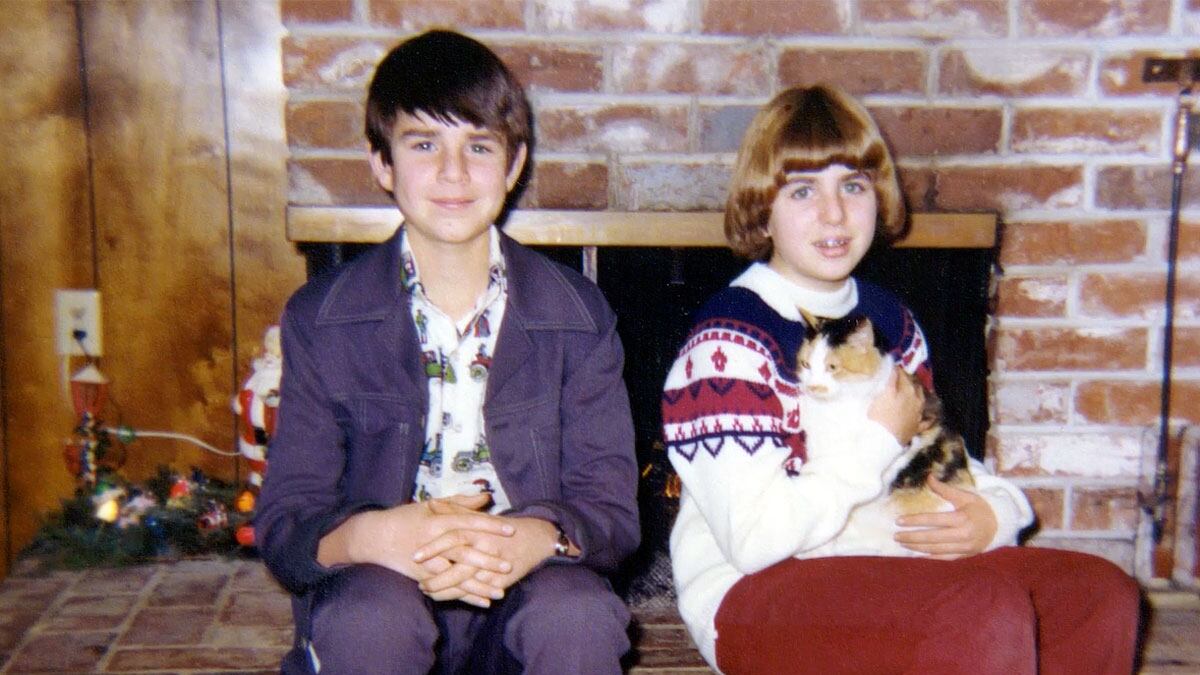One devastating moment in Sandra Luckow's new documentary, That Way Madness Lies, takes place in a Clackamas County post office.
Sandra's brother Duanne is deep in debt. He has just sold a rare car part to a collector in Australia, and he's received a check for $1,500. Behind the camera, Sandra asks the soft-spoken but excited Duanne what he's going to do with the money. He calmly explains to her that he's going to send it to Nigeria. "Then, I will have $10.5 million deposited in my Key Bank account," he says.
Before 2010, Duanne was a machinist who ran a successful fabrication business and restored classic cars at his home in Clackamas. Then, at 46, he developed late-onset paranoid schizophrenia. Luckow's new film tells the story of Duanne's illness through interviews with Duanne, his friends and Luckow's elderly parents, primarily between 2010 and 2016, when her family lived in Clackamas County and Portland. The film, which premieres this week at NW Film Center, is constructed from more than 80 hours of Sandra's filmed interviews and Duanne's own personal cellphone videos.
Duanne was a filmmaker and photographer during and after high school. A lifelong bachelor, his relationships with women have been troubled from an early age. "He never dated girls, and it seemed he was only able to be near girls by taking pictures of them," Luckow explains in the film. Luckow, a career documentarian, producer and director coach who went to high school in Clackamas County and currently teaches film at Yale, tells us she was inspired by her brother to become a filmmaker.
Duanne's illness becomes a prominent part of his and his family's life in January 2010. He suddenly becomes obsessed with a New Agey YouTube blogger named Jessica Schab, whose videos include "The Illuminati's Plan for the Starseeds" and "The Hollow Earth & Its Core." Duanne attempts to travel to Canada to marry her. He makes the journey without money or ID, blowing a border checkpoint in the process. For the first year of his illness, he begins acting increasingly paranoid and erratic, which culminates in a video he shoots at the top of Multnomah Falls, proclaiming his devotion to Schab. Duanne is involuntarily committed to Oregon State Hospital for six months after a court finds he is an imminent danger to himself.
Much of That Way Madness Lies follows Sandra and her parents' efforts to handle the fallout from Duanne's committal and the bill for over $115,000 he receives from the state. The Luckows become ever more entangled in the arcane legal framework of Duanne's financial affairs and care, while his behavior grows increasingly self-sabotaging. After he begins threatening Sandra—and, later, the police—with violence, Duanne moves from transitional housing to bouncing between homelessness, jail and psychiatric facilities.
Luckow argues that mentally ill people are failed by a legal system that treats them as rational actors even when their behavior is plainly irrational and self-destructive. Through stoic court visits and tearful conversations with Luckow's mother attempting to maintain her composure as her son loses his agency, we see systemic problems through the personal. Luckow can't stop Duanne from harming himself, and neither can he.
Despite consisting almost entirely of interviews and conversations, That Way Madness Lies is compelling film, progressing with slow, constant pressure. Duanne's self-shot videos, taken both while in the throes of psychotic episodes as he screams over a blood-smeared Bible and in the lucid aftermath as he calmly expresses his frustration with homelessness, are a rare glimpse into the horror of schizophrenia from a first-person viewpoint. The result is intimate but expansive, speaking empathetically to problems faced by thousands of American families.
"Look at what your brother had: He had a life, he had loving parents, he had a house, he had a thriving business, he was very, very skilled," journalist and mental health advocate Pete Earley explains in an interview with Luckow. "All of that is gone now, and you tried to stop it. You couldn't. Why? Because we believe he has a right to throw it all away, even though he's not thinking clearly."
Critic's Rating: 4/4 stars.
SEE IT: That Way Madness Lies screens at NW Film Center's Whitsell Auditorium on Thursday, May 11. 7 pm. Director Sandra Luckow will attend. $9, $8 students and seniors.
